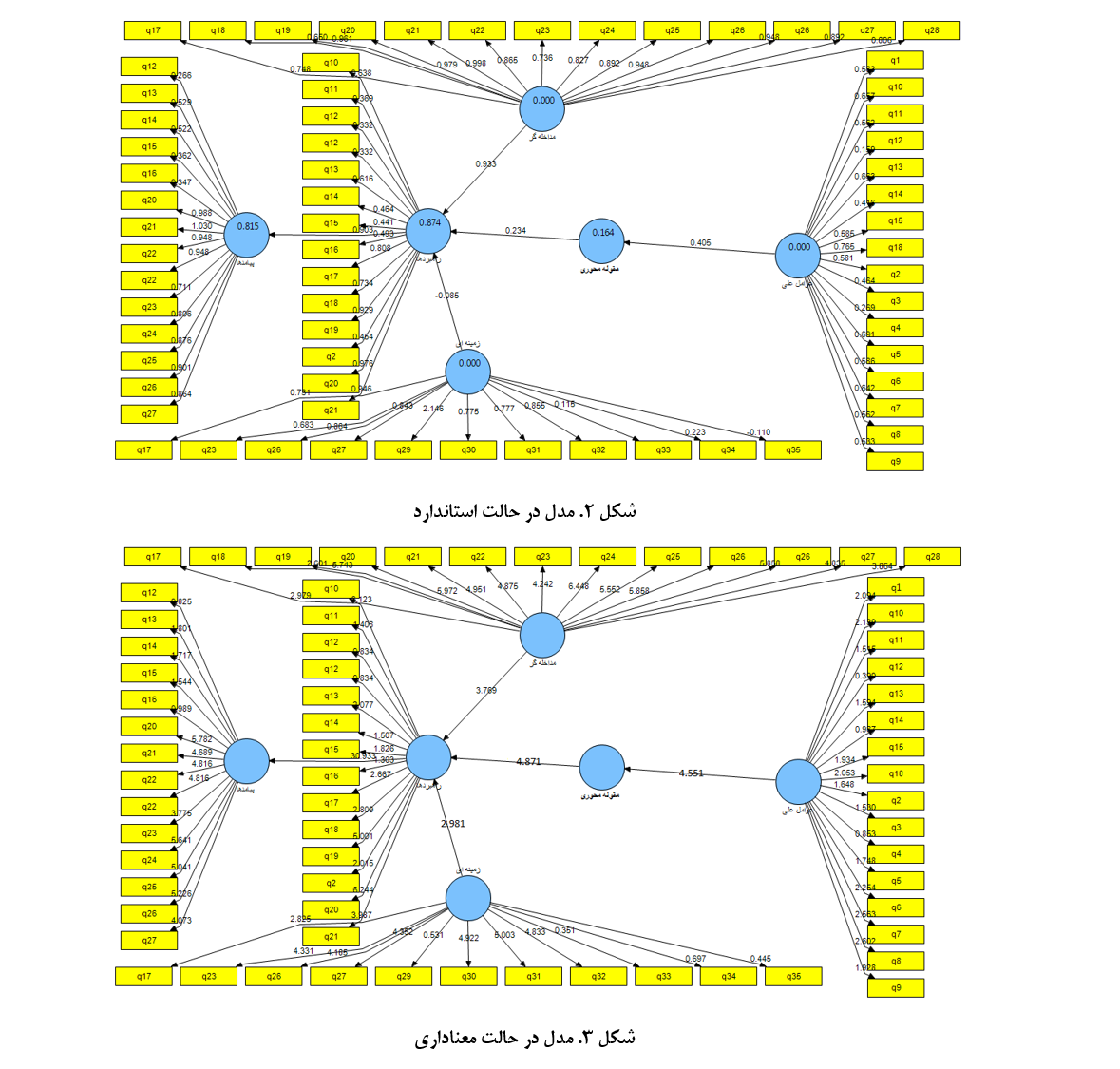Providing a Paradigmatic Model for General Education from the Perspective of Education Experts
Keywords:
General education, education, curriculum planningAbstract
This study aimed to examine and critique the current state of general education from the perspective of education experts and curriculum planners. Due to the nature and characteristics of the subject, the qualitative research method based on the grounded theory paradigm model was employed. The participants included articles related to the research topic published between 2011 and 2021, as well as curriculum and education specialists. The sample size, determined by theoretical saturation, consisted of 21 cases (4 articles and 17 participants). The sampling method was snowball sampling, and semi-structured interviews were used as the research tool. To ensure research validity, four criteria—credibility, transferability, confirmability, and dependability—were applied. Additionally, inter-coder agreement was used to assess reliability, yielding a value of 0.84. The findings indicated that the paradigmatic model for general education, as perceived by education experts and curriculum planners, is influenced by 19 main categories, 49 subcategories, and 262 open codes. Based on the results, it is recommended that managers move away from stereotypical and superficial thinking. Instead of using predefined frameworks, they should develop new frameworks for general education tailored to the needs of the modern world. Furthermore, a participatory approach (utilizing the views and opinions of actors involved in the education system) should be employed in policy formulation.
Downloads
References
UNESCO. International Standard Classification of Education ISCED. 2022.
Wahab Asad K. Primary and Secondary Education in Uganda: Challenges and Prospects. Interdisciplinary Journal of
Education. 2021;4(1):25-31. doi: 10.53449/ije.v4i1.152.
Safi A. Organization and Management in Education. Tehran: Arasbaran Publications; 2021.
Mehrmohammadi M. Rethinking the Teaching-Learning Process. Tehran: School Publications; 2013.
Bhardwaj A. Importance of Education in Human Life: A Holistic Approach. International Journal of Science and
Consciousness. 2016;2(2):23-8.
Hosseini Zarch SM, Nasiri Zarch J, Javidan L, editors. The Necessity of Recognizing Issues in Education. International
Conference on Management and Social Sciences; 2016.
Xie X, Ding J, Shen W, Liu Y. Undergraduates' Self-Reported Learning Outcomes of General Education Courses: A
Case Study of a Chinese Elite University. Higher Education Forum. 2021;18:107-24.
Asgari M, Dinaroun Rad A, Khanzadeh A, Zaheri Abdehvand A, editors. The Impact of Public Education on
Preventing Violent Crimes in Lordegan County. Fifth International Conference on Accounting and Management and Second
Conference on Entrepreneurship and Open Innovations; 2016; Tehran.
Melega L. What Are General Education Courses? 2022.
Behzadi B, editor Curriculum From the Perspective of Realism. Proceedings of the Fifth International Conference on
Humanities and Education With a Focus on Sustainable Development; 2020.
Massy FW. Assessing Education Quality Measures and Processes. Center for Development of Teaching and Learning.
;6(3):18-21.
Bozorginejad K, Zarei R, editors. Dimensions and Indicators of School Quality. Second International and Fourth
National Conference on Management and Humanities Research; 2017; University of Tehran.
Sanjabi S. Curriculum: Basics and Theories. Tehran: Noor Publications; 2018.
Abbasi N, Abdi Lifkouei A. A Comparative Perspective on the Sociological Foundations of Formal and Public
Education in the Fundamental Transformation Document of Education With an Adlerian Approach. Teacher Professional
Development Quarterly. 2022;7(1):51-63.
Hashemi M, Mortazavi M, Rahmani H. Designing a Model for Managing Public Education in the Country With a
Governance Approach. Quarterly Journal of Iranian Public Management Studies. 2021;4(4):99-130.
Khaleghinejad SA. The History of Undergraduate General Education Curriculum in Iran: A Documentary Study.
Studies in Higher Education Curriculum. 2021;12(23):239-67.
Kammas P. The Role of Institutions on the Nexus between Inequality and Public Education. Journal of Economic
Behavior & Organization. 2023;207:529-40. doi: 10.1016/j.jebo.2022.12.011.
Heimans S, Singh P, Kwok H. Pedagogic Rights, Public Education and Democracy. European Educational Research
Journal. 2022;21(1):71-82. doi: 10.1177/14749041211011920.
Metcalf T. The Case for Philosophy as a General-Education Requirement. Teaching Philosophy. 2022. doi:
5840/teachphil2022414163.
Shih Y-H. An Examination of the Functions of a General Education Art Curriculum in Universities. Policy Futures in
Education. 2019;17(3):306-17. doi: 10.1177/1478210318811012.
Mansouri Jamshidi F, Abdi Lifkouei A. A Comparative Study of the Psychological Foundations of Formal and Public
Education in the Fundamental Transformation Document of Education and Existential Therapy. Educational Humanities
Studies Quarterly. 2023;9(31):141-58.

Downloads
Published
Submitted
Revised
Accepted
Issue
Section
License
Copyright (c) 2024 Journal of Study and Innovation in Education and Development

This work is licensed under a Creative Commons Attribution-NonCommercial 4.0 International License.










